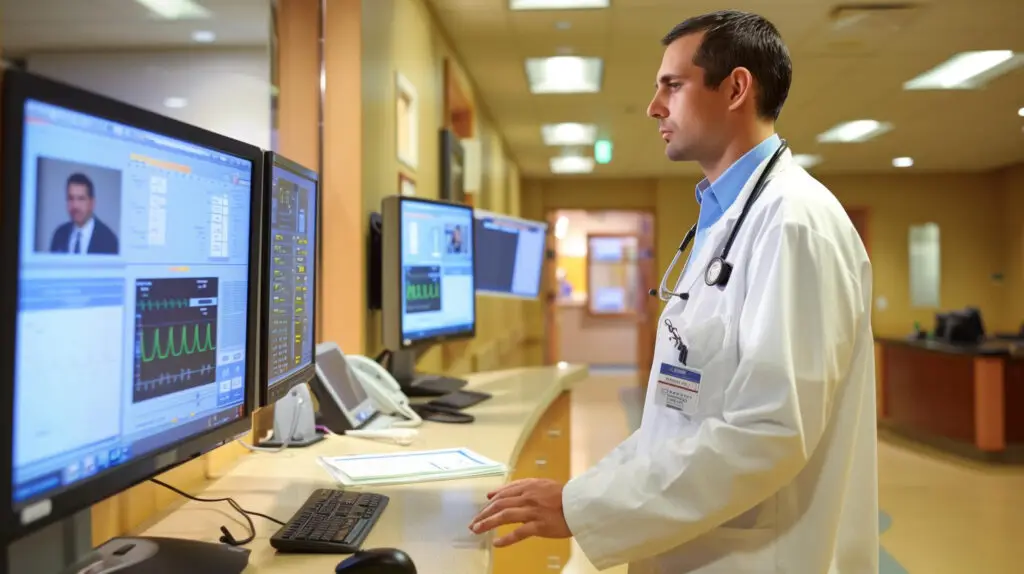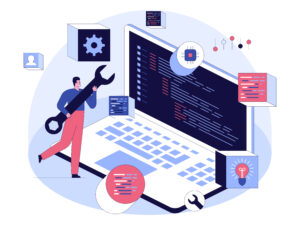Any organization’s capacity to survive depends critically on its ability to maximize income sources while preserving cost effectiveness. The critical function of a LIS (Laboratory Information System) Coordinator is at the center of this equilibrium. This unsung hero, whose duties include supervising the laboratory’s information systems’ integration and operation, is essential to increasing income streams by streamlining processes as well as making data-driven decisions. Let’s explore the vital roles that LIS Coordinators play in increasing income potential and promoting cost-efficiency.
Introduce the concept of enhancing revenue through cost-efficiency.
LIS Coordinators play a more important role now than in the past. According to recent polls, 82% of healthcare businesses place a high priority on revenue development and cost conservation, with laboratories leading the way.
Promoting efficiency improvements using their knowledge of data management and process optimization. According to studies, over the course of three years, automation solutions for laboratories result in a 30% decrease in operational expenses as well as a 20% rise in revenue growth.
They play a critical role in enabling cost-effective revenue development and steering healthcare companies toward financial sustainability in the data-driven era.
Explain how an LIS Coordinator plays a crucial role in this aspect.
Becoming important contributors to increasing income and reducing costs. 82% of healthcare businesses prioritize cost containment and revenue development, according to recent polls, underscoring the vital need for knowledge in this field.
LIS Coordinators optimize processes by detecting inefficiencies and putting in place solutions that increase productivity. They do this by drawing on their extensive knowledge of data management and technology.
When managing the difficulties of financial management, LIS Coordinators are invaluable because of their strategic insights and dedication to innovation. LIS Coordinators are important forces behind productivity and profitability in the laboratory industry as businesses aim for sustained growth and success.
Managing Costs Effectively
Managing Laboratory Costs: The LIS Coordinator’s Expertise
In the world of laboratory operations, where economics and accuracy collide, LIS Coordinators use their knowledge to negotiate the complex web of cost control. Cost containment is a top priority for 78% of healthcare companies, according to recent surveys, underscoring the crucial role that LIS coordinators play in this area.
They use their financial expertise to discover opportunities for optimization by carefully examining laboratory expenditures. They keep expenses down while upholding quality standards by negotiating with vendors and allocating funds strategically.
Furthermore, according to industry statistics, LIS Coordinators lead process improvement projects that boost operational efficiency by 25%. They further cut costs by streamlining operations and lowering human labor via the use of technology and automation.
LIS Coordinators are, in short, invaluable partners in the fight for laboratory operations’ financial sustainability because they use their knowledge to optimize productivity and save expenses without sacrificing quality.
Highlight strategies they employ to reduce expenses while maintaining quality.
LIS Coordinators use a variety of techniques to save lab costs while maintaining quality standards, including:
Process Enhancement:
- Find and fix workflow inefficiencies in laboratories.
- Simplify data management and specimen processing processes.
- Use automation to save labor expenses as well as increase efficiency for repetitive processes.
Adoption of Technology:
- Put sophisticated automation and information systems in the lab.
- Make use of digital inventory management platforms and automated specimen tracking systems.
- Make an investment in cutting-edge technologies to boost productivity and save expenses.
Strategic Negotiation:
- Reach amicable agreements with merchants and suppliers.
- Get competitive pricing and volume discounts.
- Reduce procurement expenses while maintaining supply and service quality including dependability.
Employee Training:
- Give laboratory employees continual training and opportunities for professional growth.
- Develop the knowledge and abilities needed to carry out tasks effectively as well as efficiently.
- Support initiatives to cut costs while upholding quality standards.
In order to achieve financial efficiency without sacrificing the caliber of laboratory operations, LIS Coordinators use a diverse strategy to cost reduction that includes personnel development, technology adoption, process optimization and strategic bargaining.
Revenue Optimization
Explore how an LIS Coordinator contributes to revenue optimization.
Optimizing income sources is a key responsibility of LIS coordinators. Their proficiency in data administration and financial intelligence guarantees precise invoicing, reducing mistakes and inconsistencies to optimize earnings. They also negotiate the complexity of reimbursement while arguing for just remuneration from payers. LIS Coordinators also position the business for development by identifying chances for revenue enhancement through service expansion and innovation. To put it simply, their contributions are critical to healthcare organizations’ sustainability and financial success.
Discuss their role in billing accuracy, reimbursement optimization, etc.
LIS Coordinators are the cornerstones of revenue optimization in the complex world of healthcare operations, using their knowledge to guarantee sustainability and sound finances. Their varied involvement includes several significant contributions, including:
Billing Accuracy:
- To ensure that laboratory protocols, codes and paperwork are in accordance with billing requirements, LIS Coordinators carefully examine them.
- They reduce billing mistakes and inconsistencies, optimizing revenue capture, by keeping correct records as well as putting quality assurance procedures in place.
Reimbursement Optimization:
- To optimize reimbursement rates for laboratory services, they work through the intricate world of insurance regulations, payment procedures and coding standards.
- They fight for just and equitable reimbursement by using smart billing techniques as well as aggressive payer relations, guaranteeing that the organization is paid what it is entitled to.
Innovation and Service Expansion:
- By working with laboratory personnel, physicians and administrators to provide new testing services and increase testing volumes, LIS Coordinators find ways to increase income.
- By keeping up with technology developments and industry trends, they establish the laboratory as a pioneer in innovation, boosting sales and competitiveness in the market.
LIS Coordinators are vital to revenue optimization because they guarantee correct invoicing, maximize reimbursement as well as stimulate service growth and innovation. Their assistance is crucial in understanding the intricacies of managing healthcare revenue and achieving the organization’s financial goals.
Cost-Benefit Analysis
Explain how a LIS Coordinator conducts cost-benefit analyses for various laboratory processes
Effective decision-making in laboratory operations depends on cost-benefit analysis and LIS Coordinators are excellent at it. Below are cited examples:
- LIS Coordinators work together to identify processes that require improvement.
- Data Collection: They gather in-depth information on labor expenses, resource usage and other topics.
- LIS Coordinators assess overall costs, which include both direct and indirect costs.
- Benefit Assessment: They evaluate advantages such as increased quality or efficiency.
- Quantifying Benefits: Whenever possible, they place a monetary value on benefits by using measures.
- Analysis and Comparison: To calculate the net financial effect, LIS Coordinators weigh the advantages over the expenses.
- Making Decisions: They provide precise recommendations to guide decision-making based on the analysis.
Decisions Informed by Cost-Benefit Analyses
In laboratory operations, LIS coordinators play a key role in directing choices made through cost-benefit assessments. Here are a few instances:
- Evaluating the advantages and disadvantages of investing in new equipment, such as digital imaging systems or automated analyzers.
- Process optimization: Assessing how workflow modifications, such implementing lean concepts or barcode tracking systems, affect productivity and resource usage.
- Outsourcing: Weighing the advantages of keeping internal control against the expenses of outsourcing assessments or services.
- Staffing Adjustments: Examining how recruiting new employees or reassigning duties to current employees may affect the bottom line.
- Evaluation of the costs and advantages of quality improvement programs, such as certification procedures or training courses, regarding what is correct as well as compliance is known as quality improvement.
LIS Coordinators essentially use their analysis to inform choices that maximize laboratory operations’ budgetary sustainability, quality and efficiency.
Identifying Revenue Opportunities
Discuss how an LIS Coordinator identifies potential revenue opportunities within the laboratory.
LIS Coordinators employ a diverse methodology to reveal opportunities that may be hidden within the lab. They are able to identify attractive possibilities through data dissection, sector insights, cross-departmental cooperation, process reengineering and strategic relationships. Statistics and surveys highlight topics that are worth investigating by highlighting changing service needs and increasing test volumes. While fieldwork is used to anticipate market ideals, new products are evaluated. Collaborative efforts often generate creative plans to improve profitability. Streamlining workflows simultaneously reduces waste and frees up resources for activities that generate income. Sustaining agreeable ties with stakeholders guarantees favorable agreements and fair pricing, which maximizes profits as well as cash flows. Still, there are obstacles along the way and success in the long run will depend on the ability to adapt.
Highlight areas such as test volume growth, new service offerings, etc.
LIS Coordinators use their knowledge to quickly identify revenue-generating possibilities by using the following strategies:
- Data analytics: Using information from surveys and industry statistics, they examine laboratory data to find patterns, discover test demand variations and identify trends that lead to income.
- Market Insights: To keep the laboratory flexible and responsive to market demands, LIS Coordinators perform market research to stay abreast of industry trends, rival products and developing technology.
- Collaboration and Innovation: By working across functional lines, they generate creative ideas for revenue-generating projects by drawing on the combined knowledge of administrators, physicians and laboratory personnel.
- Process Enhancement: By maximizing efficiency and income potential, LIS Coordinators free up resources to invest in revenue-generating activities by streamlining processes and cutting waste.
- Strategic Partnerships: The individuals in question foster strong connections with payers and healthcare stakeholders via strategic relationship-building. They advocate for equitable reimbursement rates as well as negotiate advantageous contracts to optimize income streams.
Staffing Made Effortless. Let the Experts Handle Your Hiring
Helping companies discover the perfect talent for their needs. Finding the right individuals to drive your success is what we excel at.





